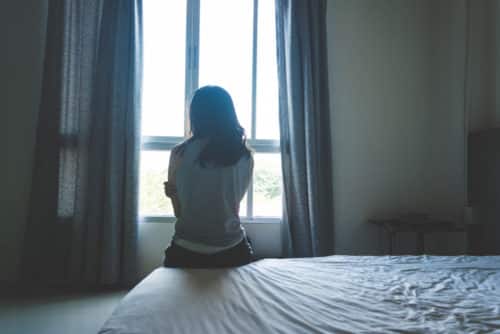 After a traumatic event, our minds need time to come to terms with the experience. For most people, this will take a few weeks, but for some, the effects will last longer and cause ongoing distress. This is known as “Post Traumatic Stress Disorder (PTSD). Let’s learn more about PTSD.
After a traumatic event, our minds need time to come to terms with the experience. For most people, this will take a few weeks, but for some, the effects will last longer and cause ongoing distress. This is known as “Post Traumatic Stress Disorder (PTSD). Let’s learn more about PTSD.
What can cause PTSD?
The events commonly recognised as causes of lasting trauma for those adults who have directly experienced them t or have witnessed them are
- Natural disasters
- War
- Serious accidents
- Physical, psychological, and sexual assaults
The symptoms of PTSD
PTSD symptoms may appear immediately after the traumatic event or may be delayed for periods ranging from days to years later.
The most obvious symptoms of PTSD are:
- Irritable behavior and angry outbursts with little or no provocation, typically expressed as verbal or physical aggression toward people and/or objects.
- Reckless or self-destructive behavior.
- Being jumpy, on edge, and hypervigilant.
- Exaggerated and startled response to relatively normal stimuli, such as a door slamming or car horn blaring.
- Difficulty concentrating.
- Sleep disturbance (difficulty falling asleep or restless sleep).
In addition, people often experience intrusive psychological or physiological reactions:
- Dominating distressing memories
- Recurrent distressing dreams
- Flashbacks are when the individual feels or acts as though the event were recurring or still occurring.
- Intense psychological distress when exposed to reminders of the event
- Physiological reactions to reminders of the event, for example, heart racing, sweating palms, stomach aches, headaches, shaking
 Those suffering from PTSD try to avoid any reminders associated with the traumatic event, including
Those suffering from PTSD try to avoid any reminders associated with the traumatic event, including
- distressing memories/thoughts/feelings
- external reminders (people, places, conversations, activities, objects, situations) that could potentially arouse distressing memories (this can be observed as self-isolation and/or pushing people away)
Related to this is the inability of PTSD victims to recall important details of the events.
Developing a negative self-image and mistrust of the world is another common symptom of PTSD. Along with self-blame, it is not uncommon for people with PTSD to experience fear, horror, anger, guilt, or shame on a consistent basis. A general sense of detachment from others and a lack of desire to engage with the world is another major symptom of PTSD.
Treatment for PTSD
There are many ways of treating PTSD including different types of therapy, such as trauma-focused cognitive behavioral therapy (TF-CBT) or eye movement desensitization and reprocessing therapy (EMDR). Medication can also help manage more distressing symptoms such as flashbacks and panic attacks.
If you or someone you know may be suffering from PTSD, please call to book your first session or start with a free 15-minute phone consultation.

